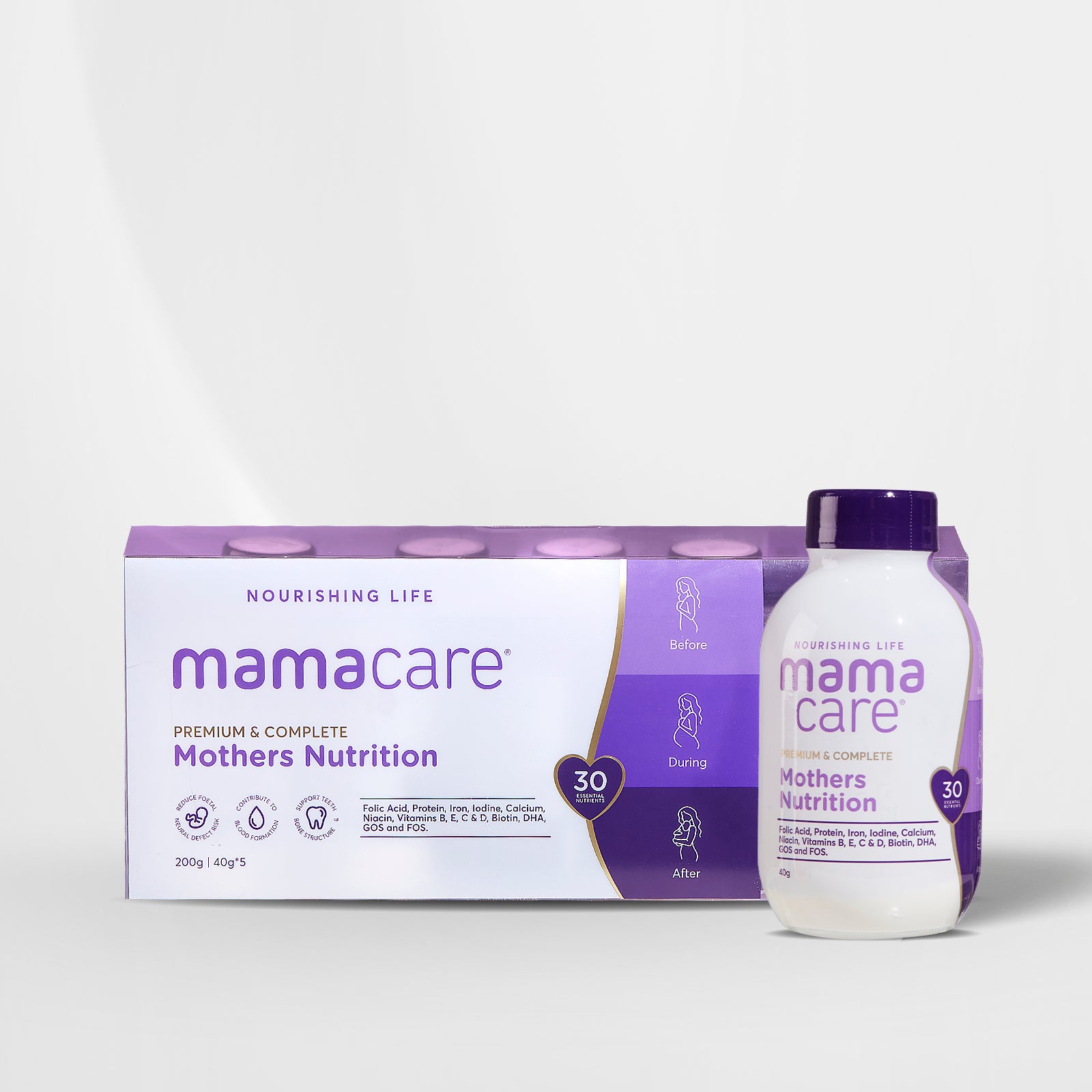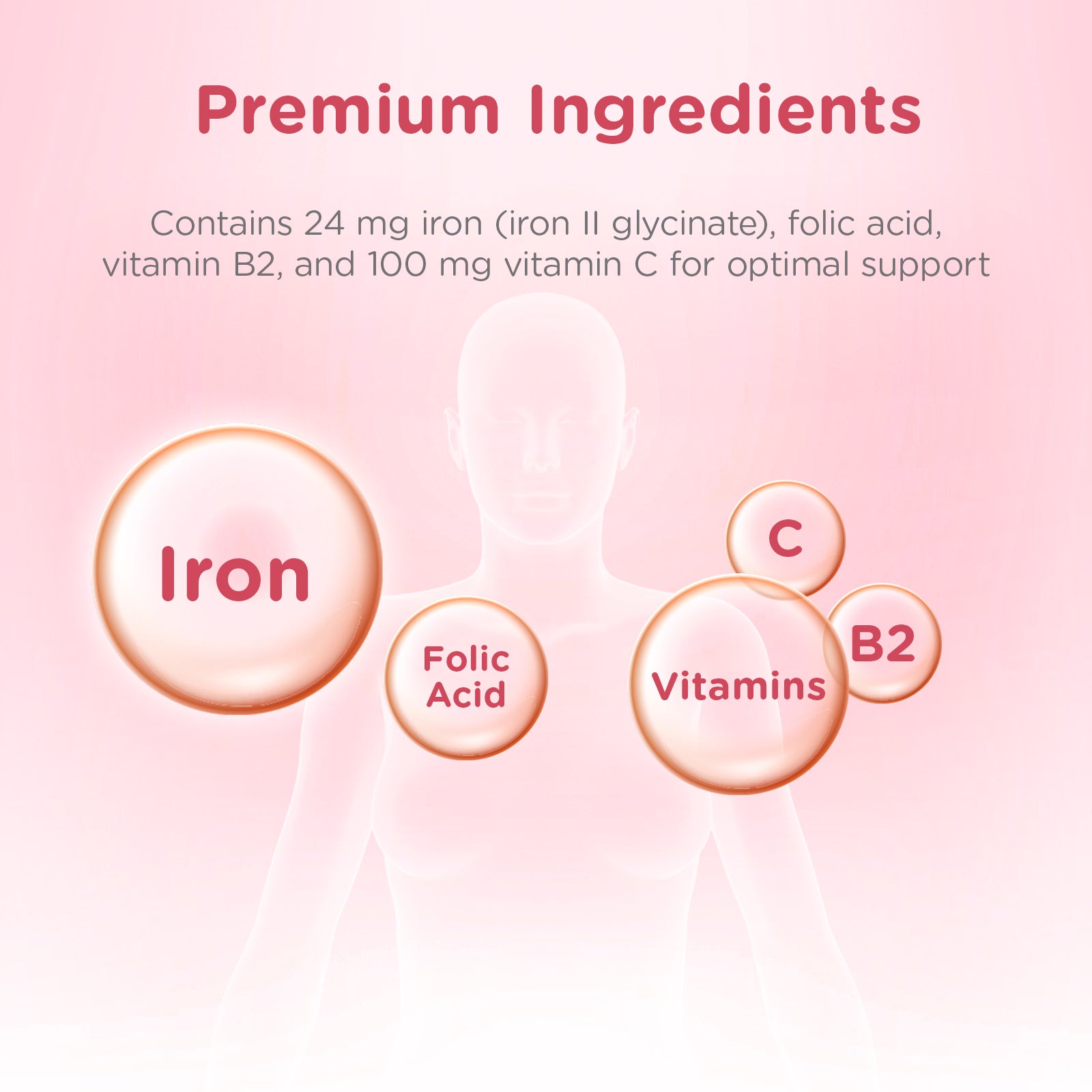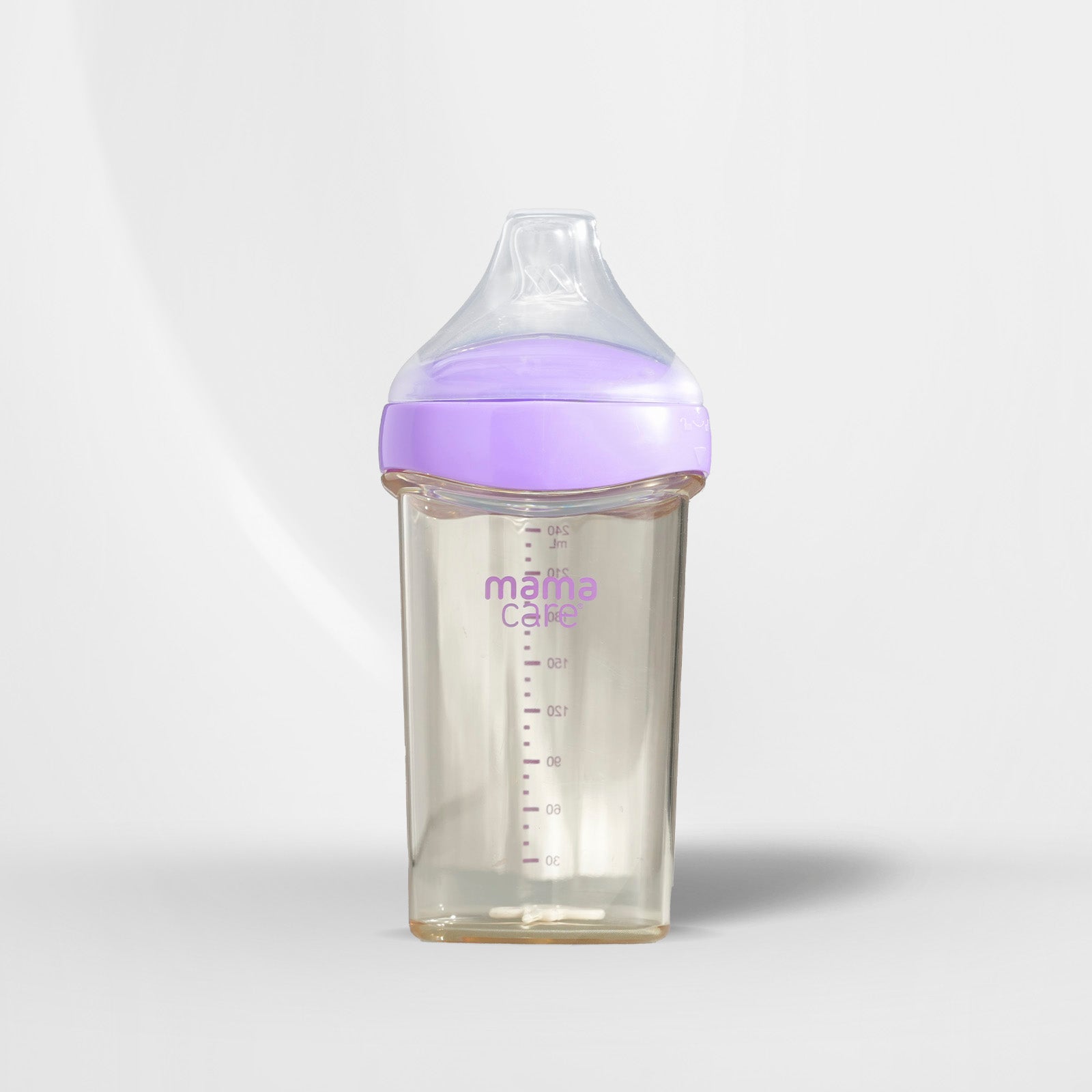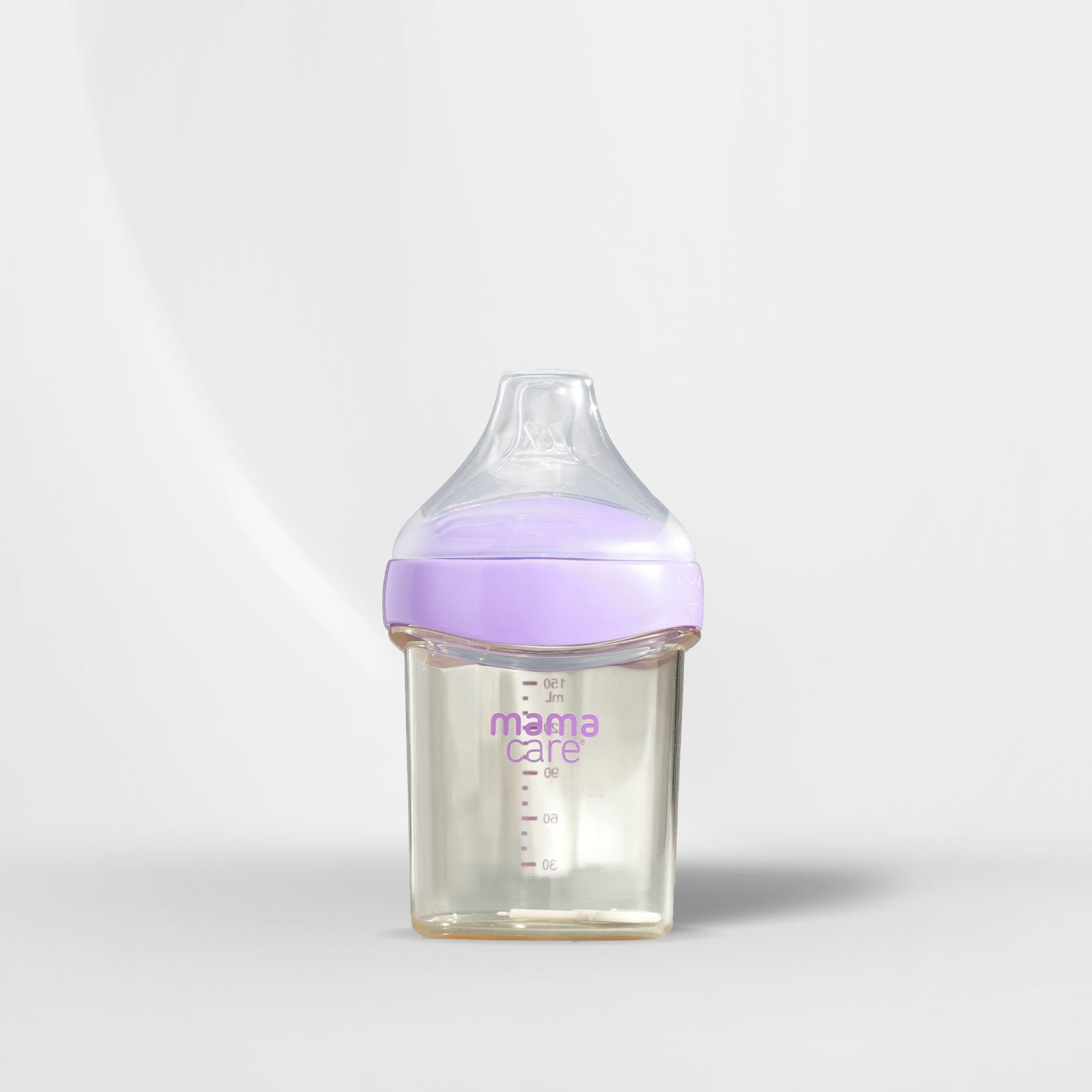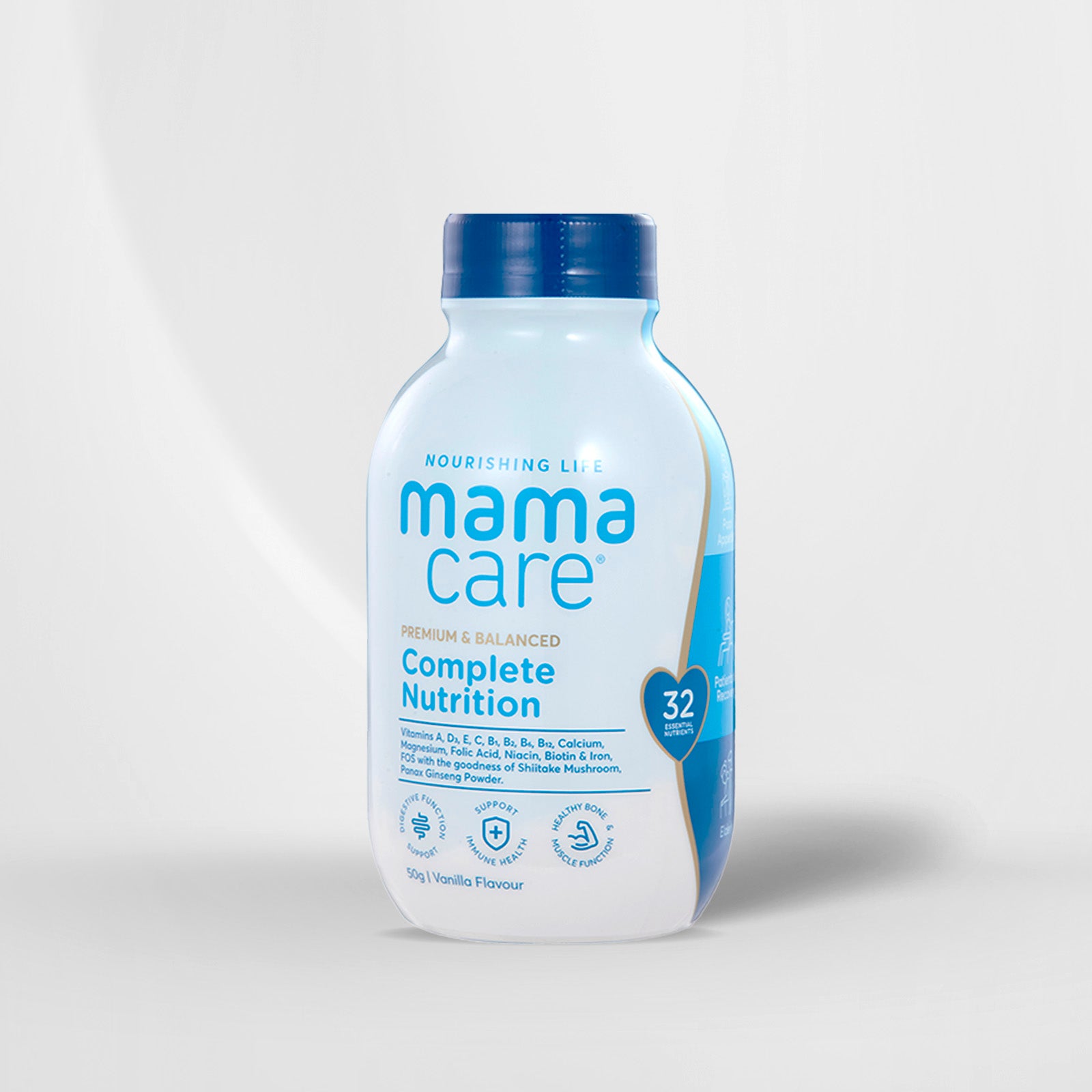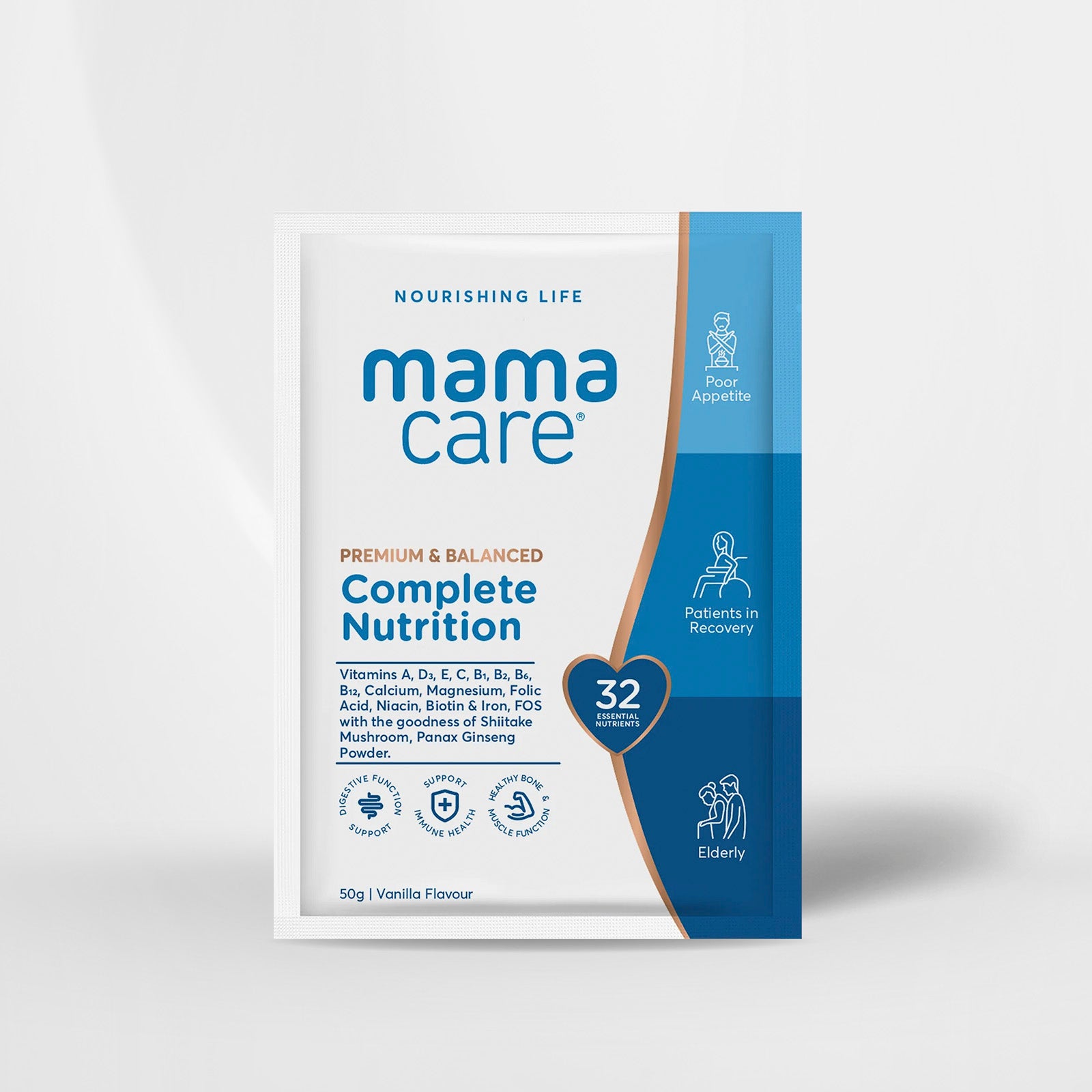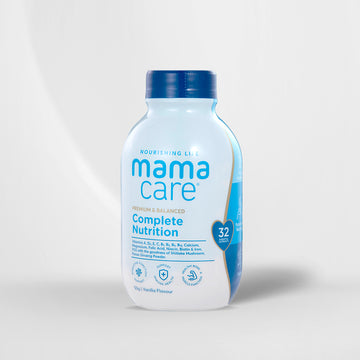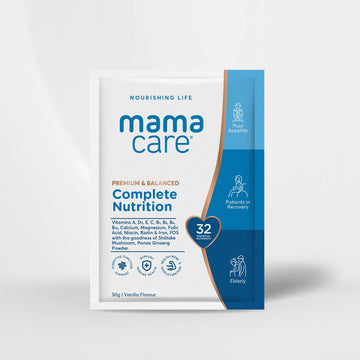



Our Collection
For yourself, mum and friends.
Products
Our promise to you
Expert partnerships, backed by science
Superior, market-leading formulations
Proven results, consumer-tested
Delicious taste, enjoyable experience


Develop evidence-based nutrition with Dr. Beth
Pair text with an image to focus on your chosen product, collection, or blog post. Add details on availability, style, or even provide a review.
Blog posts
Postpartum Vitamins and Nutrition: 6 Tips for Breastfeeding Mums
The journey of bringing a new life into this world is fantastic. As a breastfeeding mum, your nutritional needs are critical not only for your recovery but also to ensure you provide your baby with the best nutrition possible. Postpartum vitamins during breastfeeding are key to thrive during this period for you and your baby. Consider these six tips to support you through postpartum nutrition. How to Get All Your Postpartum Vitamins for Breastfeeding & Health? As a mom, your add-on nutritional needs continue until you wean the baby, and they are no longer dependent on you to receive their growth vitamins. Here are six things you can do to receive all your postpartum vitamins and ensure excellent health for you and your baby: 1. Prioritise Hydration Staying hydrated is one of the most basic yet complex aspects of nutrition aid. Since breast milk is approximately 88 per cent water, breastfeeding Mums must consume plenty of water to make milk without feeling thirsty. Essential Points to Consider - The target should be approximately 10-12 glasses (or 2.5 - 3 litres) of fluids daily. Water is the best option, but low-fat milk, herbal teas (confirm their breastfeeding-safe), and occasionally diluted fruit juice can help. Always carry a big water bottle with you. During feeding sessions, sip frequently — before, during, and after. If your pee is constantly pale yellow, you’re probably drinking enough, and if it’s dark, increase your water intake. 2. Fuel Your Body Wisely You’re burning more calories while producing milk — about 400 to 500 extra calories daily compared with your pre-pregnancy needs. Now, this isn’t an excuse to go crazy and eat as many biscuits and takeaways as possible (although a few treats are acceptable). Ensure you eat nutrition-dense foods, like those that give you necessary energy while giving you essential vitamins and minerals. Eat whole foods: Whole foods contain fruits, vegetables, oats, brown rice, quinoa, chicken, fish, beans, lentils, tofu, and nuts. If you are looking for healthy fats, you can use olive oil. Don’t skip meals: Be sure to have frequent snacks, even if you are crunched for time. Every time you skip a meal, there is a high chance of stress and fatigue. It would generally pressure energy reserves, affecting your overall capability to produce milk in the long run. Focus on Key Nutrients – Your Postpartum Powerhouses Although a balanced diet addresses a lot of bases, the demand for specific nutrients rises during lactation. Your body prioritises putting these into breast milk, sometimes at the expense of your reserves if your intake is low. Iron: You lose a lot of blood when you give birth. This increases your need for iron to prevent anaemia. Good sources of Iron are lean red meat, poultry, fish, beans, lentils, and fortified cereals. Vitamin C is found in veg and fruits and aids in iron absorption. Calcium & Vitamin D: These two items are essential to maintain bone health and the growth of skeletal formation of baby bones made from milk produced by mothers. Calcium and vitamin D are a top priority for bones. (Source: Calcium and Vitamin D: Important for Bone Health) Dairy products and fortified plant milks are good sources. Iodine: Iodine is a crucial building block for your baby’s developing brain and its tiny thyroid gland (which helps control their growth and metabolism). While breastfeeding, your body cleverly prioritises sending iodine into your milk, meaning you need more than usual to keep your levels and your baby’s topped up. Omega-3 Fatty Acids (especially DHA): DHA is vital for your baby’s brain, eye, and nervous system development. (Source: PubMed) It’s transferred through your breast milk. Oily fish (salmon, mackerel, sardines – aim for 1-2 portions per week, being mindful of mercury guidance), walnuts, chia seeds, and flaxseeds are the best sources of Omega-3 fatty acids. Supplementation is often considered to ensure adequate DHA levels. B Vitamins (especially B12 and Folate): Important for energy release and cell production. It is found in meat, fish, dairy, eggs, fortified cereals, and leafy greens. 4. Plan for Easy, Healthy Meals and Snacks When you’re tired, convenience is key. Relying solely on takeaways or processed foods can leave you feeling sluggish. A little planning goes a long way: Batch cook: When you have energy, make double portions of meals like stews, soups, or pasta sauces and freeze half. Stock healthy snacks: Keep easily accessible, nutritious snacks handy for when hunger strikes (often during feeds). Take yoghurt pots, fruit bowls, pre-cut vegetables with hummus, hard-boiled eggs, cheese portions, nuts, seeds, and oatcakes. Simple meals: Don’t aim for complexity. There are great options for scrambled eggs on wholemeal toast, a jacket potato with beans and cheese, or a hearty salad with pre-cooked chicken or lentils. 5. Switch to Specific Postpartum Vitamins Breastfeeding Due to the heightened demands and the fact that no diet is perfect, many health professionals recommend supplementing well into the postpartum period. Although you may have been on vitamins for pregnant women, your needs change a bit after giving birth, particularly once you’re lactating. That is precisely where postpartum vitamins and breastfeeding supplements work well for your body. They supplement the gap in your regular diet and increase the need for iron, vitamin D, iodine, DHA, and some B vitamins. Consider them a nutritional safety net that helps ensure you and your baby get what you need during this critical time. Continuing vitamins during pregnancy might be okay in the short term, but a dedicated postnatal formula is often better tailored. 6. Listen to Your Body and Be Kind to Yourself Your body has achieved something miraculous. Avoid restrictive diets or try to “bounce back” too soon. Crash dieting can hurt your energy level — and possibly your milk supply. Give all the best food to yourself. Eat when you’re hungry. Rest when you can. Gentle exercise, such as walking, can improve your mood and energy levels when you feel up to it, but listen to your body and get clearance from your health visitor first. Complete Your Nutrition with MamaCare Navigating postpartum nutrition can feel overwhelming, but remember, small, consistent steps make a big difference. Focusing on whole foods, hydration, and key nutrients forms the foundation. You can also include nutritional supplements like MamaCare Mother’s Nutrition to fill any gaps in your regular diet. Mothers Nutrition is a supplement powder formulated to complete the dietary needs of pregnant and breastfeeding mothers. It provides a carefully considered blend of essential vitamins and minerals, including crucial micronutrients like Folic Acid, Iron, Iodine, Vitamin D, and Calcium, to help support your energy levels, recovery, and the nutritional quality of your breast milk. It’s also relatively easy to use Mother’s Nutrition supplement. You only need to mix about 40 grams of the powder in 200ml of water at room temperature, and it’s ready for consumption. References: https://https://www.niams.nih.gov/health-topics/calcium-and-vitamin-d-important-bone-health Fang X, Lee S, Rayalam S, Park HJ. Docosahexaenoic acid supplementation and infant brain development: role of gut microbiome. Nutr Res. 2024 Nov;131:1-13. doi: 10.1016/j.nutres.2024.08.005. Epub 2024 Sep 7. PMID: 39342808.
Learn more10 Essential Nutrition Tips for Men & Women Entering Golden Years
Getting older brings a new set of changes in your body. The new body demands different dietary habits, and your tolerance for old food habits may decline. Many people find they aren’t as hungry, and alongside, their energy might go up and down, or they might get new health issues. It’s easy to forget that your diet might need to change too. Still, you can boost your energy and stay healthy by choosing the right foods. Eating better can make a massive difference in how you feel and what you can do daily. Here are ten crucial food tips that will help you eat well during the golden years of your life: 1. Prioritise Protein Power As we age, it’s common to lose some muscle mass. Sufficient protein intake prevents this. Protein helps to build and repair your body, including your muscles. Aim to include some protein in every meal. Boiled chicken, turkey, eggs, and fish (salmon, for example) are good choices. And if you are vegetarian, you can take milk, yoghurt, cheese, beans, lentils, tofu, and nuts. Tip: Eating protein, a little at a time over the day and not all at once is preferable. 2. Boost Bone Health with Calcium & Vitamin D Older people have a higher risk of getting weak bones (called osteoporosis). This is especially true for women after menopause. Your bones contain calcium, and Vitamin D helps your body absorb that calcium. Ensure you eat calcium-rich foods, such as dairy products, fortified plant-based milk, leafy green vegetables (kale, broccoli — though absorption does vary) and tinned fish with edible bones (such as sardines). Getting enough Vitamin D can be tricky. We get most of it from sunlight, but older skin also doesn’t make it. You might also spend less time outdoors. Look for foods with added Vitamin D. 3. Focus on Fibre for Digestive Wellness Sometimes, as you get older, your digestion slows down. This can make it hard to go to the toilet (constipation). Eating fibre helps keep everything moving smoothly. Fibre also helps control your blood sugar and can help you stay at a healthy weight. Eat more foods like oats, brown rice, and whole wheat bread. Fruits, vegetables, beans, peas, lentils, nuts, and seeds are also full of fibre. Try to eat about 25 to 30 grams of fibre each day. (Source: MedicineNet) Good sources include oats, pears, apples, and seeds like chia. Remember to drink more water when you eat more fibre. Water stops it from feeling uncomfortable in your tummy. 4. High Probiotic Diet Include high-probiotic foods in your diet. Probiotics enrich the good ecosystem in your gut, improve digestive functions and boost immunity. Foods that are rich in probiotics, such as yoghurt, kimchi, kefir, Sauerkraut, tempeh, pickles, etc., help you naturally support the microenvironment in your gut. However, with age, you may need to look elsewhere to support your digestive microsystems. You can use supplements with a high-probiotic diet, However, with age, you may need to look elsewhere to support your digestive microsystems. You can use supplements with a 5. Choose Healthy Fats for Heart and Brain Fats are not created equal. Unsaturated fats in oily fish (salmon, mackerel), avocados, nuts, seeds, and vegetable oils (like olive and rapeseed oil) are suitable for heart protection and brain function. Limit saturated fats in fatty meats, butter, lard, cream, cakes and biscuits. Avoid trans fats, which are often used in processed foods. Being anti-inflammatory, omega-3 fatty acids, especially from fatty fish, are suitable for general health. 6. Vitamins are Vital – Especially B12 Although all vitamins are critical, vitamin particularly stands out: vitamin B12. Its level increases or decreases with age since the production of stomach acid changes. Along with this, B12 is essential for nerve function and red blood cell formation. You can eat meat, fish, and eggs and take dairy products and fortified breakfast cereals, as these foods are rich in vitamins. If you follow a vegetarian or vegan diet, consider talking to your health specialist about checking your B12 levels because you may require supplementation. 7. Mind Your Minerals (Iron, Zinc, Magnesium) Iron helps with the transportation of oxygen in the blood and keeps anaemia-induced fatigue at bay. You must include red meat, beans, lentils, fortified cereals, and dark leafy greens, which are excellent sources of iron. Also, eat Vitamin C-rich foods like oranges to aid absorption. Zinc promotes your immune system and wound healing (sources: meat, shellfish, dairy, nuts). Magnesium is present in muscle and nerve functions that regulate blood sugar and blood pressure. Therefore, to maintain your blood level, increase your magnesium intake by eating green vegetables, nuts, seeds and whole grains. 8. Watch Portion Sizes, Not Just Content Your metabolism declines with age. You may require fewer calories than you used to during the younger age to maintain a healthy weight. But your nutrient needs usually stay the same or even go up. This is why nutrient density is so important (see next point). Be mindful of portion sizes to prevent accidental weight gain. Sometimes, using smaller plates can trick the eye and mind and make you feel satisfied with less food. You should listen to your body’s signals for hunger and fullness. Aim for 1.0–1.3 g/kg/day dietary protein combined with twice-weekly progressive resistance exercise (source: PMC). 9. Embrace Flavour to Combat Taste Changes Smell and taste changes are common with ageing; sometimes, these are related to medications or medical conditions. This can have the unfortunate effect of suppressing appetite or throwing its dependence on salt or sugar for flavour. Season your food naturally with herbs, spices, lemon juice, vinegar, garlic and onions rather than too much salt and sugar, as they can be bad for your blood pressure and general health. 10. Make Every Calorie Count with Nutrient Density Since you may not need as many calories, it’s even more important that your food is nutrient-dense. Nutrient-dense foods offer vitamins, minerals, fibre and other beneficial compounds relative to very few calories. Concentrate on whole, unprocessed foods: colourful fruits and vegetables, whole grains, lean proteins and healthy fats. Restrict foods high in ‘empty calories’, such as sweet sodas, candy bars, pastries and highly processed snacks. 11. Hydrate Diligently Throughout the Day As you get older, you might not feel thirsty, even without enough water. Being dehydrated can make you feel tired, dizzy, confused, or constipated. Make sure you drink often during the day. Drink even if you don’t feel thirsty. Low-fat milk, drinks made with sugar-free squash, tea, and coffee also count towards your fluids. Try to drink about 6 to 8 glasses (around 1.5 to 2 litres) every day. You might need more if it’s hot weather or if you are very active. MamaCare® Complete Nutrition Navigating these nutritional needs can sometimes feel overwhelming, especially if appetite is low or preparing balanced meals becomes challenging. Though good food habits can make a change, taking dietary supplements boosts your overall health. MamaCare® Complete Nutrition offers a convenient balanced diet for old age solutions. It is packed with 30+ essential vitamins, minerals, and protein to help fill potential nutritional gaps. The best part is it is a low-calorie formula with only 811 kJ per serving. Mixing into drinks or foods is simple, supporting overall vitality and well-being. Prepare 50g of Complete Nutrition Powder with 200 mL of room-temperature water. For a more tailored and balanced diet for old age options, browse our full range of adult supplements designed to meet various needs. References: https://www.medicinenet.com/how_can_i_eat_25_grams_of_fiber_a_day/article.htm Nowson C, O'Connell S. Protein Requirements and Recommendations for Older People: A Review. Nutrients. 2015 Aug 14;7(8):6874-99. doi: 10.3390/nu7085311. PMID: 26287239; PMCID: PMC4555150.
Learn moreNutrients Needed During Pregnancy & What to Eat After Giving Birth
We all take proper care of nutrients needed during pregnancy, but what about post-pregnancy? After giving birth, your body demands more than just rest. Repairing and blood loss recuperation, emotional fatigue, hormonal changes, pain, and recovery require a good diet full of essential nutrition. Nutrition shifts can make the transition smoother, improve healing, and uplift one’s mood. To help you, we have prepared a complete diet plan for postpartum. Here are a few essential foods to eat after delivery and the reasons behind each food recommendation. Here are the seven most critical nutrients you need during and after pregnancy, to continue supporting your baby’s growth: 1. Protein-Packed Meals Recovery demands high amounts of protein due to tissue repair. Healing perineal tears or C-section incisions, retaining muscle mass and feeling satiety are critical. This is useful while managing energy levels and knowing how to get through the time available between feeds or naps. Furthermore, protein is a crucial component of breast milk. Best sources of protein: chicken, turkey, fish (especially oily varieties like salmon), lean beef or lamb, eggs, lentils, beans, chickpeas, tofu, and Greek yoghurt. 2. Complex Carbohydrates Do not avoid carbohydrates. Instead, avoid simple ones. Most complex carbohydrates are beneficial in fighting off mothers' constipation after giving birth. Consider whole-meal bread, oats (porridge is remarkably warm, soothing, and nutritious), brown rice, quinoa, wholewheat pasta, sweet potatoes, and starchy vegetables. These foods provide effective energy, aid in maintaining abdominal health, and are vital for the sustenance of B vitamins that help in metabolism, energy levels, and even mood. 3. Healthy Fats Healthy fats such as Omega-3 fatty acids DHA are key. If you’re breastfeeding, these fats are essential for your baby’s brain development. Omega-3 also supports brain function and mood regulation, helps quell inflammation throughout your body as it heals and is needed for absorbing fat-soluble vitamins. These beneficial fats are widely available from avocados, nuts (walnuts and almonds are among the best), seeds (chia seed, flaxseed, and pumpkin seed are a great choice), olive oil and oily fish (salmon, mackerel and sardines 1-2 portions weekly if you are mercury aware). Including these fats supports your baby’s neurological development through your milk and can, quite literally, help stabilise your mood and nutrient absorption. It is also a concentrated energy source. Research suggests adequate omega-3 intake may also help reduce the risk of postpartum depression. (Source: Omega-3 fatty acids and mental health) 4. Iron-Rich Foods Battling postpartum fatigue usually starts with iron. Blood loss during delivery is normal and can quickly drain your iron reserves, sometimes causing anaemia, which directly leads to symptoms of tiredness because iron is vital for producing haemoglobin to transport oxygen around your body. Increase your iron by eating lean red meat, poultry, fish, lentils, beans, fortified breakfast cereals, spinach, and dried apricots. A key recommendation is to combine these iron-rich foods with sources of Vitamin C (peppers, oranges, berries or broccoli!) within the same meal since Vitamin C dramatically increases iron absorption. Restoring iron in your body helps support energy, fight fatigue, and promote overall vitality. (Source: PubMed) 5. Calcium & Vitamin D If breastfeeding, calcium is also crucial for your little one's developing bones and teeth, so protecting your bone health is essential! Vitamin D helps absorb calcium, and it supports immune function, too. Some of the best sources of calcium include dairy products (milk, cheese, yoghurt), fortified plant-based milk, tinned fish with edible bones (sardines with the bones), leafy greens, and calcium-set tofu. For Vitamin D, oily fish and fortified foods play a part in providing safe exposure to sunlight. Everyone should take a Vitamin D supplement, particularly in the autumn and winter months, even postpartum mothers. Ensuring adequate intake protects your bone density, provides essential building blocks for your baby’s bones via milk, and supports immune health. 6. Fruits & Vegetables Try to eat lots of colourful fruits and vegetables every day. They give you essential vitamins, minerals, antioxidants, and fibre your body needs. Antioxidants help your body cope with the stress of healing and not getting enough sleep. Vitamins help with many body functions, like keeping your immune system strong. Fibre is essential to help your digestion stay regular. Don’t just stick to the same few foods. Add berries, oranges, peppers, carrots, broccoli, and leafy greens (like spinach or kale) to your meals and snacks. Eating a good mix helps you get a broader range of nutrients. This is great for your immune system and helps keep you regular. It gives you tiny nutrients that are key for your overall health and even help you stay hydrated. 7. Drink Plenty of Fluids (Especially Water) Drinking enough water is crucial after you've had your baby. This is especially true if you're breastfeeding, as breast milk is mainly made of water. Even being slightly dehydrated can make you feel much more tired. It can also lead to constipation and affect how much milk you produce. Make water your main drink all day long. A simple trick is to keep a water bottle right next to where you usually feed your baby or where you rest. This makes it easy to remember to take sips. Milk and herbal teas are safe for pregnancy and breastfeeding and count towards your fluids. Consuming water-based pregnancy and breastfeeding supplements also adds to your water consumption need All The Nutrients You Need During & After Pregnancy Eating well every day can be hard when you have a new baby. MamaCare’s Mother’s Nutrition packs all the nutrients you need as a new mother in easy-to-prepare and consume formula. The supplement is optimised with prebiotic fibres FOS and GOS to support digestion. So, it also helps new moms avoid digestive issues and absorb the nutrients better. Other reasons why you should include MamaCare’s Mothers Nutrition in your arsenal: Australian-made supplement crafted for mums before, during, and after pregnancy - supporting you and your baby every step of the way. Packed with folic acid, calcium, iron, DHA, and natural fibres, it helps nurture the baby’s development, mother’s energy, and digestion. It contains vitamins B, C, D, and E to support energy, immunity, and mineral absorption Finally, it is easy to take; just blend 40g of MamaCare Mothers Nutrition Powder in 200ml of room-temperature water and sip your way to better motherhood.
Learn more





